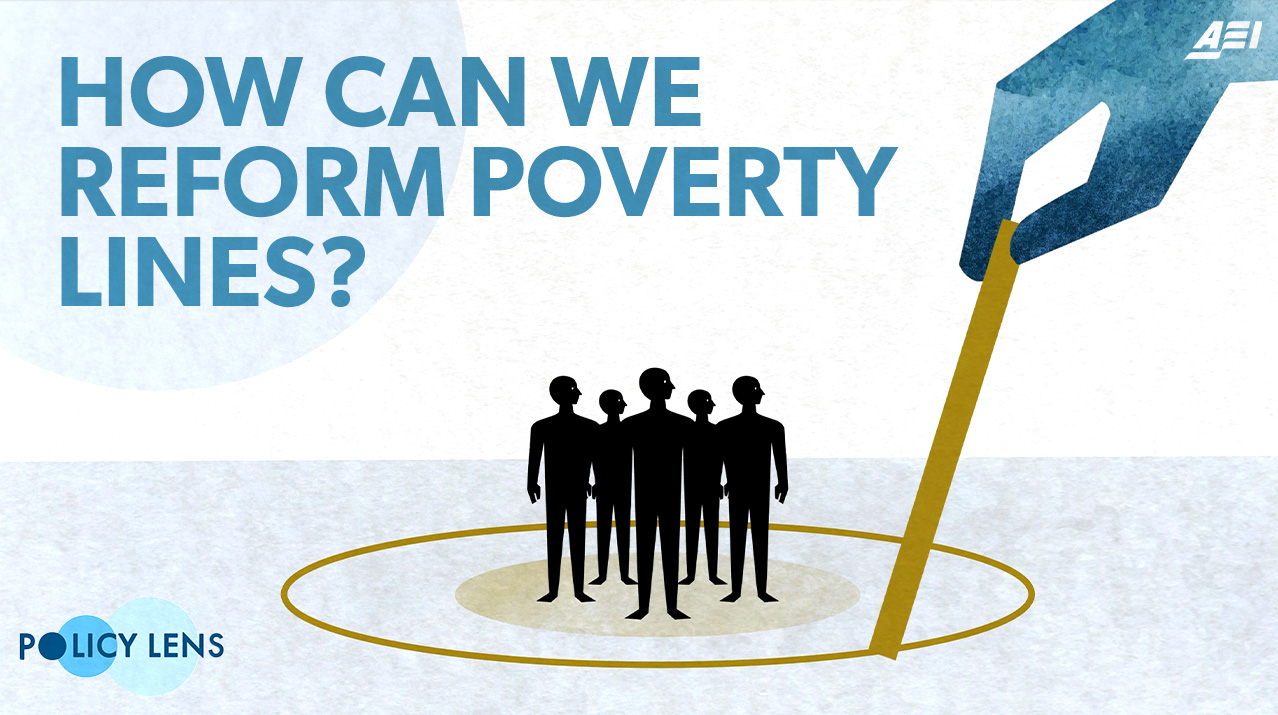Welcome to Our Research Archive
Search and filter by content type, issue area, author, and keyword
- ✕ Clear Filter
- Angela Rachidi (54)
- Beth Akers (1)
- Brent Orrell (4)
- Bruce D. Meyer (11)
- Howard Husock (5)
- James C. Capretta (1)
- James Pethokoukis (3)
- Kevin Corinth (47)
- Kyle Pomerleau (6)
- Leslie Ford (6)
- Matt Weidinger (74)
- Michael R. Strain (3)
- Nicholas Eberstadt (1)
- Paul Ryan (1)
- R. Glenn Hubbard (1)
- Richard Burkhauser (8)
- Richard V. Burkhauser (2)
- Robert Cherry (2)
- Robert Doar (8)
- Ryan Streeter (1)
- Scott Winship (25)
- Stan Veuger (3)
- Timothy P. Carney (2)
- W. Bradford Wilcox (3)
- Yuval Levin (3)

May 29, 2025
How Non-disabled Medicaid Recipients Without Children Spend Their Time
The reconciliation bill passed by the United States House of Representatives imposes community engagement requirements for childless non-disabled Medicaid recipients age 19–64, starting in 2027. The requirement can be met by spending 80 hours in at least some months either working, going to school, participating in a work program, or doing community service. In a…

May 28, 2025
An Evaluation of Approaches to Cut and Reform SNAP
House Republicans narrowly passed their version of President Trump’s “big, beautiful bill” last week, and the legislation contains major changes to SNAP, including expanded work requirements, reduced federal and state exemptions and shifting more of the costs to states. Changes are likely as the Senate takes up the bill, and Kevin Corinth, senior fellow and deputy…

May 20, 2025
The share of Medicaid recipients in compliance with the House bill’s community engagement requirement
Last week, the House Committee on Energy and Commerce approved several changes to Medicaid as part of the reconciliation bill. One major change is the imposition of community engagement requirements for non-disabled working age adults without dependent children. This change would take effect in January 2029, although some House members have argued for moving up…

May 14, 2025
An Evaluation of Cost-Saving Reforms to the Supplemental Nutrition Assistance Program
Abstract Congress is considering ways to reduce spending on the Supplemental Nutrition Assistance Program (SNAP) by $230 billion over 10 years. Reforms will likely include one or more of the following cost-saving elements: reducing the maximum SNAP benefit, reducing deductions, expanding work requirements, and ending broad-based categorical eligibility. I analyze each of these reforms, focusing on the…

March 18, 2025
Poorly Defined: Reforming the Poverty Line | POLICY LENS
Ever since President Lyndon B. Johnson declared a “war on poverty” in 1964, the US Safety Net has been remarkably effective in reducing the number of Americans living in poverty; but measuring the magnitude of that success is not so straight forward. AEI’s Kevin Corinth explains that defining poverty is largely a decision of society,…

March 11, 2025
An Evaluation of Cost Saving Reforms of the Supplemental Nutrition Assistance Program
AbstractCongress is considering ways to reduce spending on the Supplemental Nutrition Assistance Program (SNAP) by $230 billion over ten years. Reforms are likely to include one or more of the following cost-saving elements: reducing the maximum SNAP benefit, reducing deductions, expanding work requirements, and ending broad based categorical eligibility. In this paper I analyze each…

February 28, 2025
Less Than Half of Medicaid Recipients Work Enough to Comply With a Work Requirement
Congress is considering implementing work requirements for Medicaid. This reform could help Congress achieve its goal of reducing federal expenditures and simultaneously strengthen the incentive for Medicaid recipients to work. At the same time, individuals who do not comply with the work requirement may lose health insurance coverage. Underlying the policy debate is the extent…

February 4, 2025
The Family First Act Would Expand Net Income Tax Refunds to Higher Income Families
Some pro-family conservatives are rallying around Rep. Blake Moore’s (R-UT) Family First Act. Relative to a clean extension of the Tax Cuts and Jobs Act, the bill would cost an additional $575 billion over the next decade in order to increase the generosity of tax breaks targeted at families with children. The bill would lead over half of tax filers…

January 24, 2025
The Targeting of Place-Based Policies: The New Markets Tax Credit Versus Opportunity Zones
Abstract For a place-based policy to succeed, it must target the right areas—typically those with lower economic development and resident well-being. The U.S. has two major place-based tax policies: the New Markets Tax Credit (NMTC), where government-approved entities select investments, and Opportunity Zones (OZs), where private investors choose projects. Despite underlying design differences, both target…

January 21, 2025
President Trump’s USDA Should Fix Food Stamp Work Requirement Waivers
As President Donald Trump begins his second term, he and his administration will be exploring ways to improve government efficiency and economic outcomes for low-income Americans. One such policy—a 2019 regulation governing states’ use of waivers to the Supplemental Nutrition Assistance Program’s (SNAP) work requirement—does just that. Although the regulation was never implemented after being…